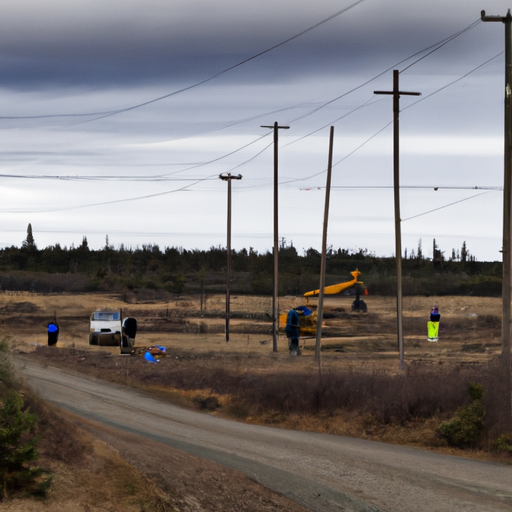The Opioid Crisis In Canada – First Nations Sign a Necessary Deal
Hello readers! Something unusual but remarkable has been happening in providing support to communities impacted heavily by the opioid crisis in Canada. As seen in a remarkable article from CHCH, four First Nations have signed a critical deal with the province of Ontario to build essential infrastructure—an effort that could have a significant impact on opioid crisis plaguing these communities.
An Unexpected Strategy to Battle the Opioid Crisis
Yes, you are wondering how a road-building agreement relates directly to the opioid crisis. The connection is not that far-stretched if we consider the broader context. Isolation, economic hardship, and lack of resources drive many communities into the ravaging arms of the opioid crisis. The government’s initiative to construct roads is an attempt to combat the epidemic by addressing these underlying issues.
The Deal: What, Who, and How?
The deal has been signed among the province of Ontario and four First Nations – Marten Falls, Webequie, Neskantaga and Eabametoong. An investment in developing the necessary infrastructure to access the mineral-rich Ring of Fire area could bring transformational change to these communities the Ontario government believes.
The Expected Impact of The Deal
This landmark deal could be a beacon of hope for these communities long plagued by the shadow of opioid misuse. Building roads is just the beginning; the ultimate goal is to bring forth opportunities for investment, job creation, boosting the economy, and thereby, building a better future for the residents. With increased accessibility, there is a hope to bring essential services like healthcare closer to the residents, which might have a direct impact on the opioid crisis.
Here are the highlights of this milestone agreement:
- The agreement is between Ontario and four First Nations – Marten Falls, Webequie, Neskantaga and Eabametoong
- This initiative will potentially bring new investment, boost economy and create jobs
- Enhanced accessibility would help deliver vital healthcare services to combat the opioid crisis
- The joint infrastructure project aims to connect remote communities to the Ring of Fire area
How This Deal Contributes to the Battle Against Opioid Crisis
Without a doubt, the opioid crisis has been and remains a severe threat to the wellbeing of many Canadian communities. It has been linked to many critical issues such as homelessness, increase in crime rates, and an escalating social crisis. Recognizing this, the involvement of naloxone – a drug used to combat the effects of an opioid overdose, had to increase dramatically. However, the opioid crisis cannot be combated merely by increasing naloxone availability. A synergy of efforts, including community development, economic growth, and supporting accessibility to healthcare is the need of the hour. We hope this recent deal would be a significant stride in this direction.
Closing Thoughts
In conclusion, the multi-faceted and pervasive nature of the opioid crisis calls for an equally diverse and far-reaching strategy. The recent deal between the government of Ontario and four First Nations communities is a laudable step towards this end. It aims to tackle the opioid crisis not just on a symptomatic level -like increasing naloxone availability, but goes a step beyond to address underlying systemic issues. Although it will be some time before the effects of this agreement can be gauged accurately, it is undoubtedly a step in the right direction.


